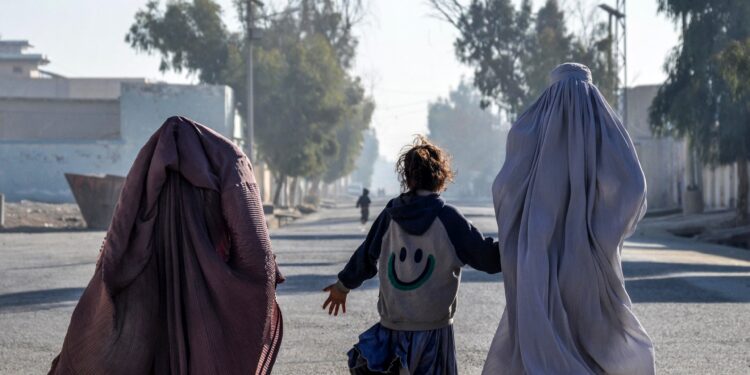Ministry of Economy warns that any NGO that does not comply will have its activities suspended and its licence revoked.
The Taliban government says it will close all national and foreign nongovernmental organisations (NGOs) employing women in Afghanistan.
In a letter published on X on Sunday night, the country’s Ministry of Economy warned that failure to comply with the latest order would lead to NGOs losing their licence to operate in Afghanistan.
The directive came two years after the government told NGOs to suspend the employment of Afghan women, allegedly because they did not adhere to the administration’s interpretation of the Islamic dress code for women.
The Economy Ministry said it was responsible for the registration, coordination, leadership and supervision of all activities carried out by national and foreign organisations.
The government was once again ordering the stoppage of all female work in institutions not controlled by the Taliban, according to the letter. “In case of lack of cooperation, all activities of that institution will be cancelled and the activity licence of that institution, granted by the ministry, will also be cancelled,” it said.
Since the Taliban’s return to power in August 2021, women have been largely erased from public spaces, prompting the United Nations to denounce the “gender apartheid” the administration has established.
Taliban authorities have banned post-primary education for girls and women, restricted employment and blocked access to parks and other public places. The group originally said the ban on post-primary education was a “temporary suspension” that would be resolved after the establishment of a safe environment for girls to attend school, but no changes have been made so far.
Earlier this month, the UN Security Council was informed that a growing number of female Afghan humanitarian workers were being prevented from carrying out their duties, despite the critical need for relief work.
Tom Fletcher, a senior UN official, reported an increase in the number of humanitarian organisations that have had female or male staff blocked by the Taliban government.
The Taliban denies it is obstructing aid agencies or interfering with their operations, and defends its actions as necessary to uphold the
country’s law, social norms and public safety.
The group also denies it has imposed complete bans on women’s activities and highlighted that nearly 9,000 work permits have been
issued to women since the Taliban takeover and that many women were part of the Afghan workforce.
In another development, Taliban leader Haibatullah Akhunzada has ordered that buildings should not have windows looking into places where a woman might sit or stand.
According to a four-clause decree posted on X over the weekend, the order applies to new buildings as well as existing ones.
Windows should not overlook or look into areas like yards or kitchens. Where a window looks into such a space, then the person responsible for that property must find a way to obscure this view to “remove harm,” by installing a wall, fence or screen.
Municipalities and other authorities must supervise the construction of new buildings to avoid installing windows that look into or over residential properties, the decree added.
A recent law prohibits Afghan women from singing or reciting poetry in public. Some local radio and television stations have also stopped broadcasting female voices.







